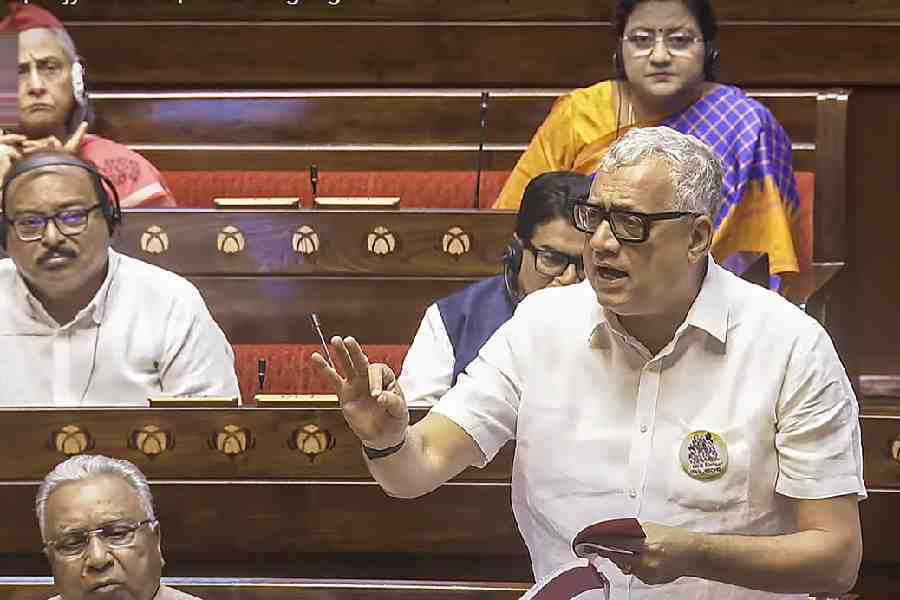The Trinamool Rajya Sabha leader Derek O’Brien says the Parliamentary select committee in its 2015 report on the Goods and Services Tax (GST) bill had recommended the taxes should not exceed 18 per cent and multiplicity of taxes should be avoided.
“Now, done. Better late than never,” wrote O’Brien, who was a member of the select committee, in his latest blog published on Friday.
The GST council on Wednesday announced a two-tier structure, which the Union government has pipped as major reforms.
O’Brien said economist Amit Mitra, the former chairperson of the Empowered Committee of state finance ministers on GST and principal chief advisor to the Bengal chief minister, too welcomed the GST rationalisation with the rider that the benefits reach the people.
“There was an anti-profiteering committee that ensured the lower GST would be passed on to the consumers. That committee has been discontinued. Second, there also remains the question of how states will be compensated. Eleven ministers in the GST Council had asked for compensation, their voices were muffled,” O’Brien wrote quoting Mitra.
“The revenue secretary said that revenue loss will be Rs. 48,000 crore. But he did not take into account the supply chain. It will, easily, be over Rs. One lakh crore,” he wrote.
The Trinamool’s Rajya Sabha leader said while much is being made about the GST, the Centre is silent on cess.
“In all the hoopla about GST, the four-letter word which is slitting the throat if federalism is cess. Funds collected as cess go 100 per cent to the Union government. Not a rupee is shared with the State government,” he wrote.
In 2012 cess formed seven per cent of the Union government’s total tax revenue, according to O’Brien.
“In 2025, cess is estimated to be about 20 per cent of the Union government’s total tax revenues. Rs. 5.7 lakh crore of cess and surcharge has been lying unutilised since 2019,” said O’Brien.
He said even the BJP ruled states had protested against the shrinking divisible pool of revenue.
“These states (22 in total) asked the 16th Finance Commission for a larger share of tax collections – currently 41 per cent to be raised to 50 per cent. As per Reserve Bank of India, the divisible pool has shrunk from 89 per cent of gross tax revenue in 2011 to 79 per cent in 2021. This, despite the 10 per cent increase in tax devolution to states as recommended by the 14th Finance Commission,” O’Brien wrote. “Between 2015 and 2024, cess (in operation) has increased by 462 per cent (over Rs. Two lakh crore).”










